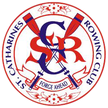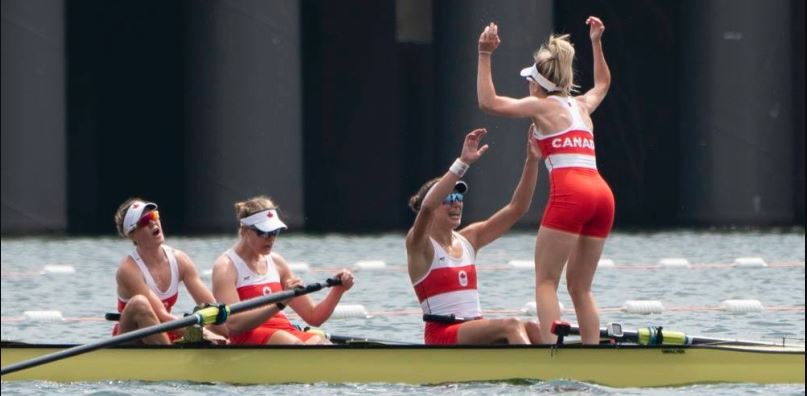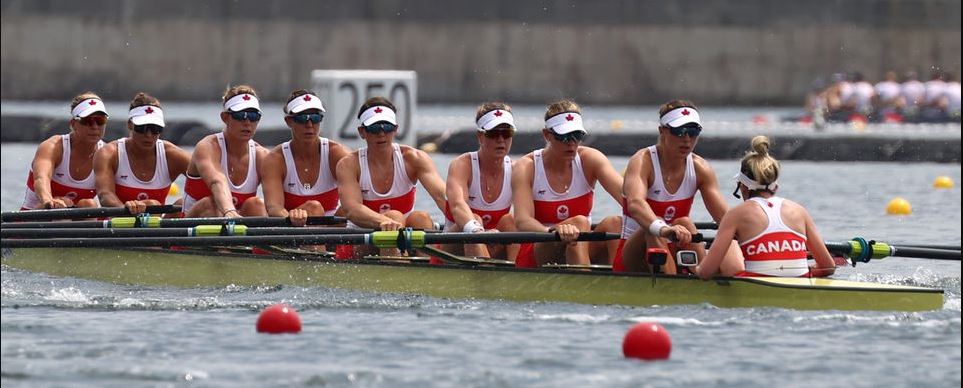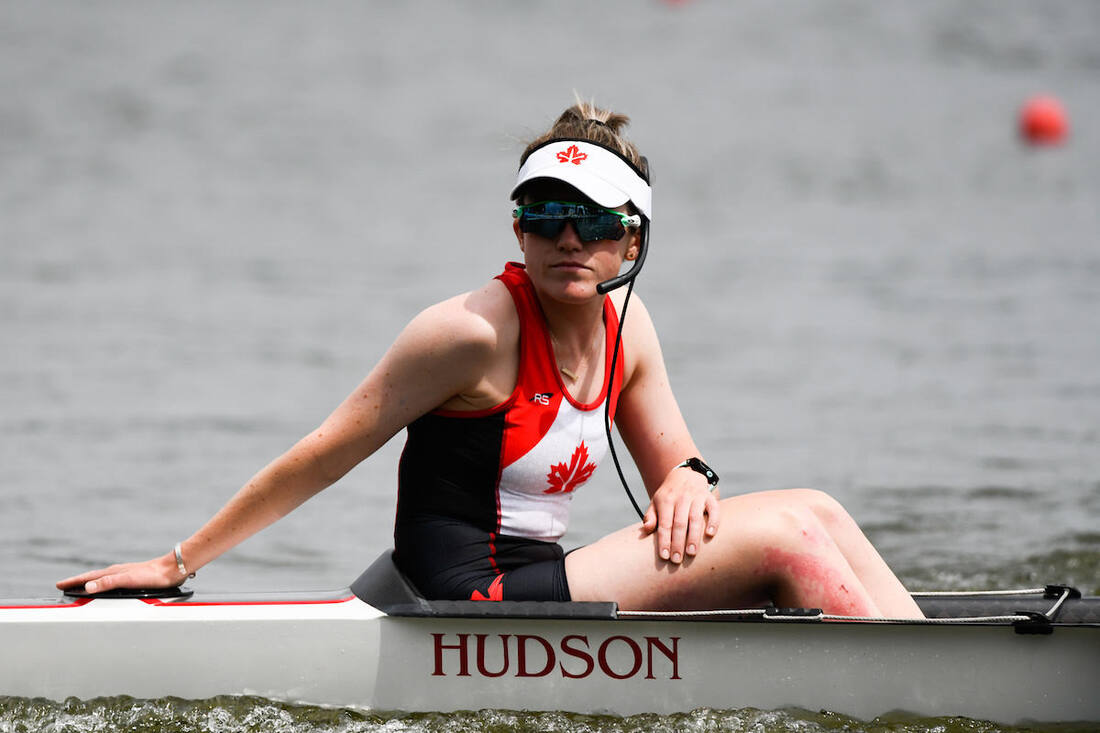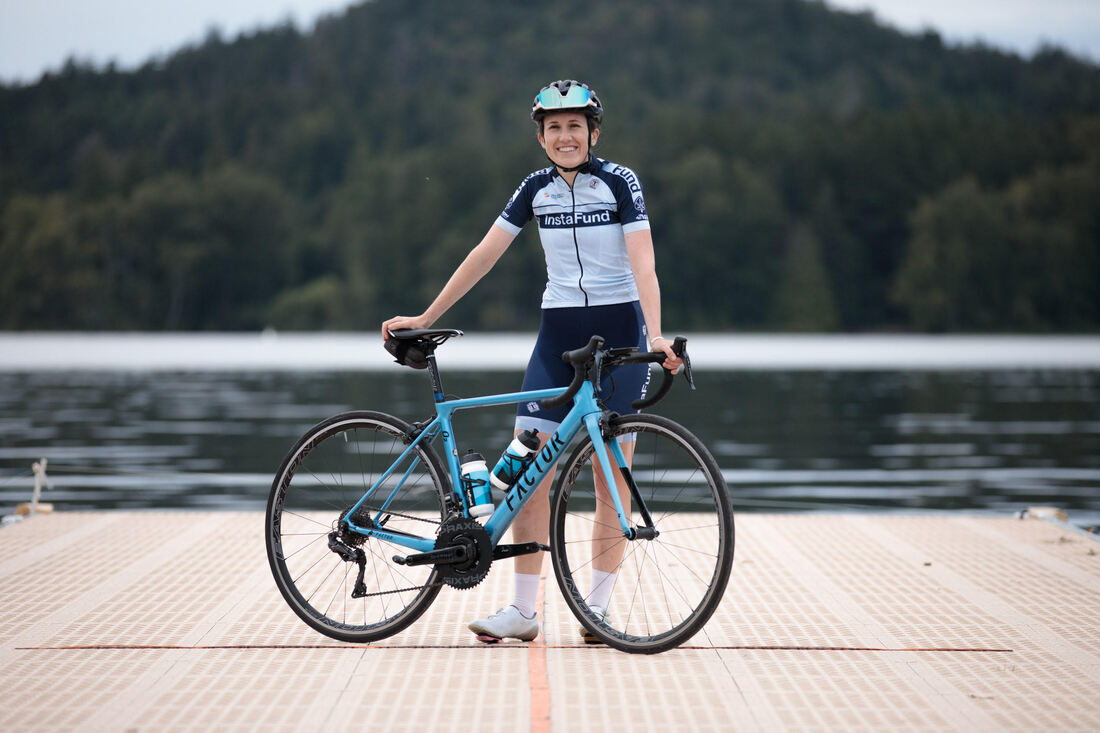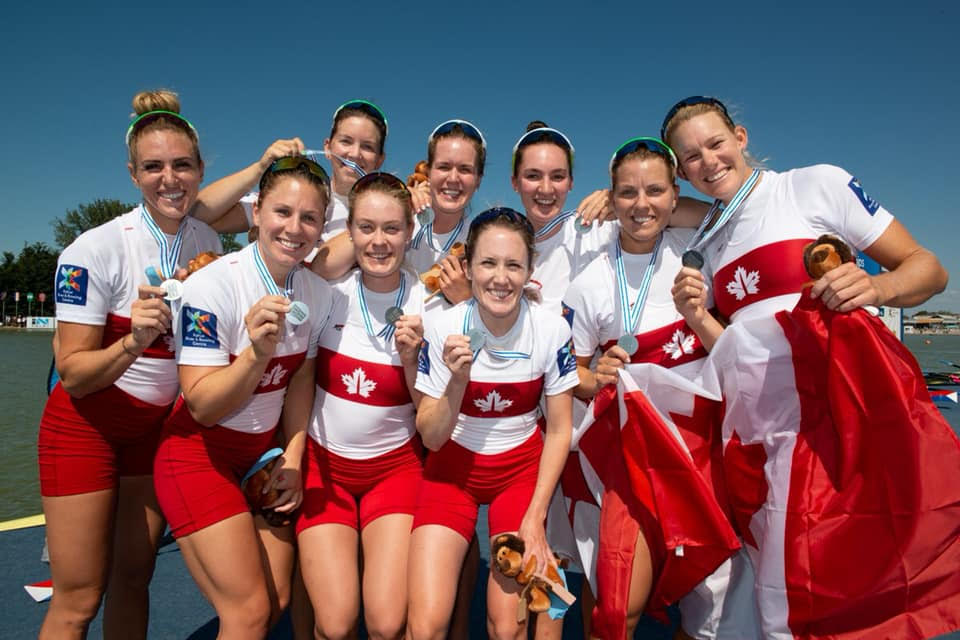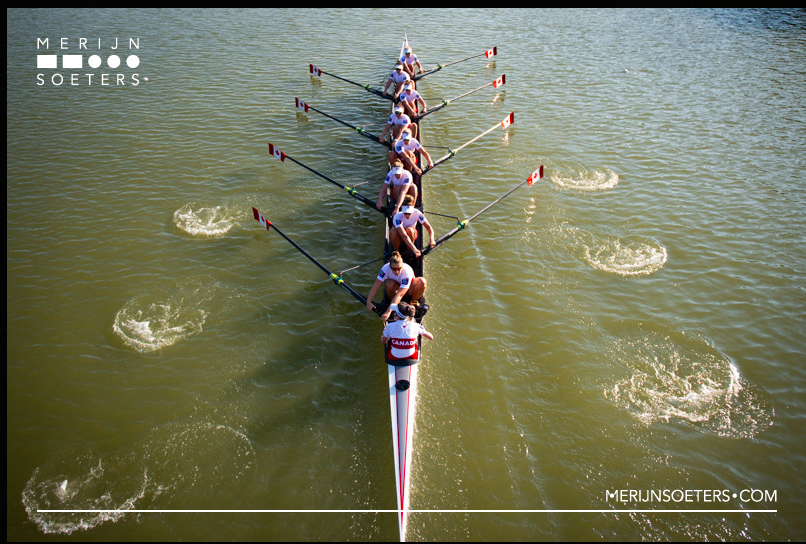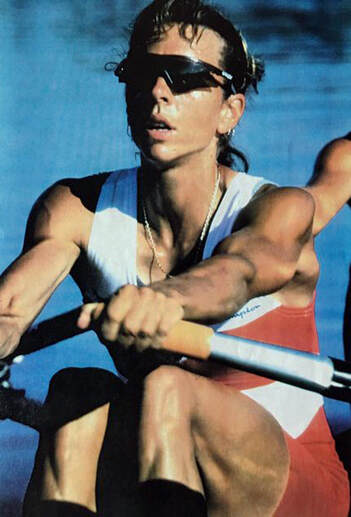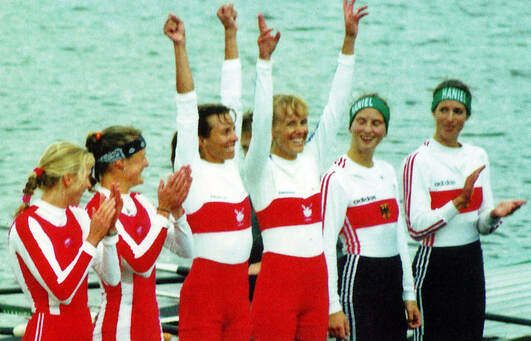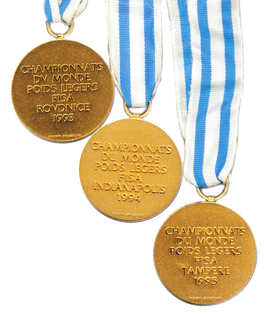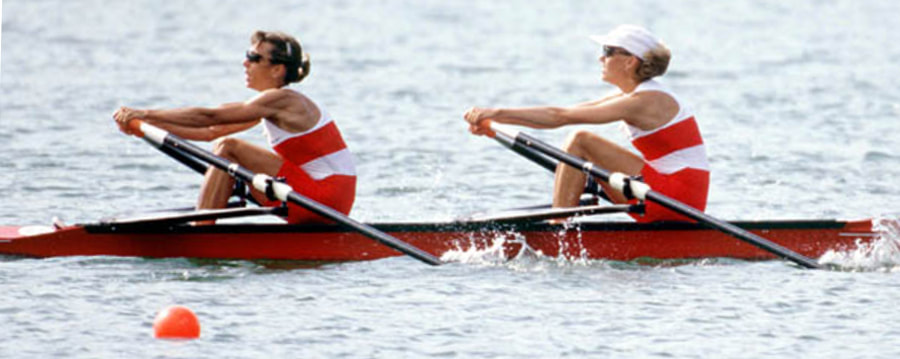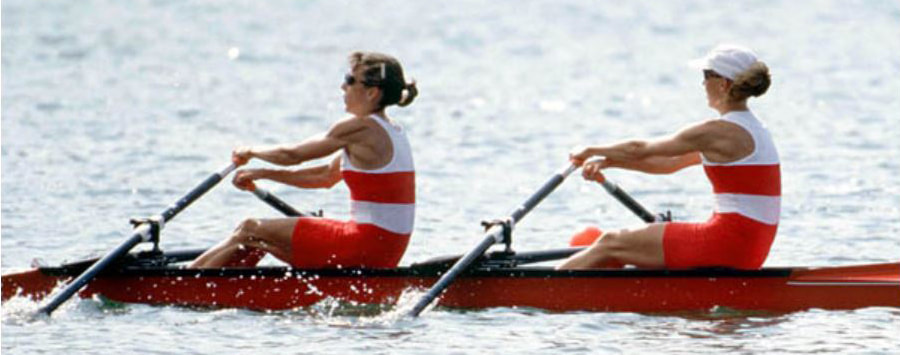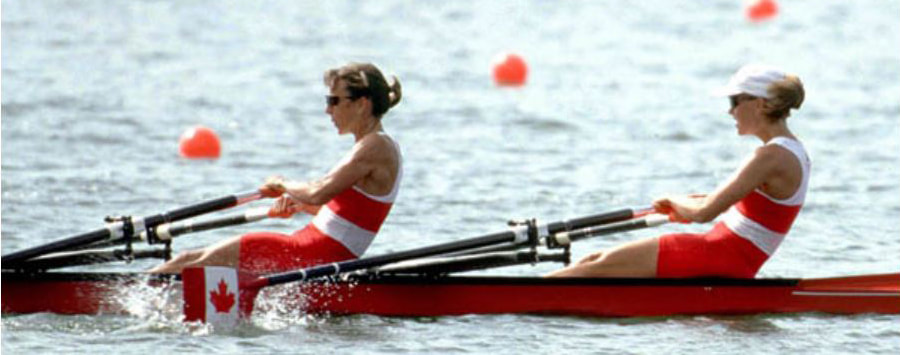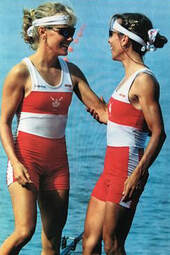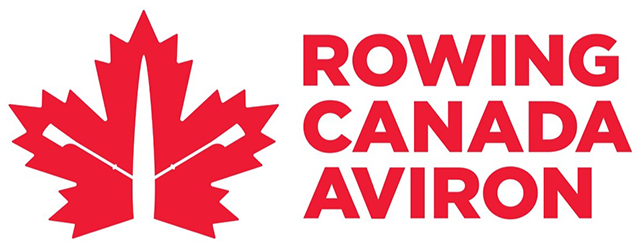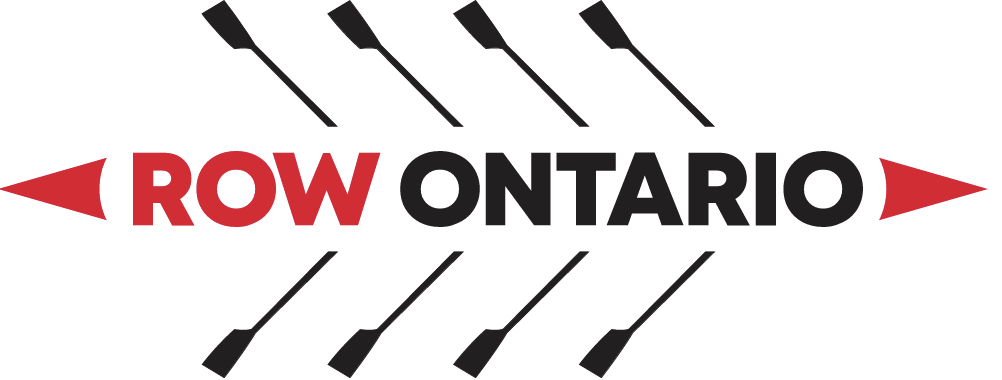|
Before the Tokyo Olympics, Kristen Kit was a household name in the St. Catharines Rowing Club community. Now, she needs no introduction. The newly crowned Olympic Champion coxed the women’s eight to a gold medal last week, succeeding in their intention to “redefine excellence”. I spoke with Kristen a week after the performance that dominated the race course, and had rowers and sports fans alike cheering all across Canada. Kit’s intentionality and awareness in the boat has transferred to her reflections on the race that will not be forgotten by Canadians anytime soon. What was the most notable moment of this whole experience, from qualifying to standing on the podium? We were a process-focused crew, and our coach Michelle Darvill made sure we remained true to that mentality. If I had to choose one moment, it would be crossing the finish line with those eight women, knowing that there were a lot of other people who helped us get there. We had a spare that came in quite late, and then her seat got taken back by Kasia after she healed from her injury. Our spare Becca Zimmerman was very selfless; she trained just as hard as anyone else and she obviously couldn’t race with us because there’s only 8 seats. Of course, our coach Michelle and Carol Love were both so integral to our crew, but they weren’t at the starting gates with us. When we crossed the finish line and won, it was about us, but also all the people that helped us get there. We were able to put down a performance that we were proud of and felt it represented all the people that worked us to get there.
You said in another interview that when you were locked in the starting gates you imagined that every person who has been a part of your rowing career was in the boat with you. What does it mean to you that you have also affected so many athletes throughout your career, especially now? Before I came on to the scene in the women’s 8+, there wasn’t a pathway for coxswains. You had to try and get past Leslie, and there was no one that was able to do that. Both Michelle Darvill and Al Morrow made space for me and other people when we started coming up. I’ve already had coxswains reach out to me saying that they saw the race, and they are now inspired to pursue the higher level of competition, and that’s amazing. It’s still going to be hard, but a pathway exists now. On a larger scale, rowing is an amateur sport, it’s not mainstream like soccer, and I hope that young boys and girls see a race like that and an opportunity to try it themselves. I hope that it helps rowing across Canada, both in keeping people involved in the sport, and trying it for the first time. Participation is not just about trying to go to the Olympics, but about increasing opportunities to experience the sport. Can you walk us through that last 1000m? It was so dominant, and the margin just kept improving. When did you know you had it? It wasn’t the last three strokes that I knew we were going to win. We had been rowed through for the first two races of the week, first by the Kiwis in the last 10 strokes. Romania had a fantastic sprint in the other race, and even though we were on pace for a world record, they walked through us. So the threat of being walked through was very clear in our minds and I didn’t trust it until the last three strokes. That being said, I always knew that we could do it. We had been going really fast all year, and with the speeds that I was seeing, it was clearly the fastest boat I had ever been in. The culture of the group was quite good. I knew that if we had our best race we could do it. Can you talk a bit more about your team’s goal to “redefine excellence”? We had a really neat situation when we came back from the initial COVID lockdown in July 2020. We were very fortunate to have the opportunity to train, and our coach Michelle was very big on culture and developing her rowers not just as athletes but as people. This group was quite tight, all 17 of us, some of whom ended up in the 4. Our 8+ came up with the idea that we wanted to not just be the fastest women’s eight at the Olympics, but ever. We got pretty close to it, we didn’t quite get to that, but we got close. We wanted to redefine the event and the boat class for Canada, and do something that people had never done before. Winning wasn’t our goal. Our goal was to go beyond that and have the absolute best race we, or anyone else, had ever had. That being said, we were at the Olympic Games, which is an outcome driven event, so it could have been easy to get away from that goal. But I think we raced well because we focused on the process, and every woman was trying to take her best stroke at the moment. For us that meant redefining what that meant for us individually and as a crew. We wanted to redefine what a women’s crew could do, redefine what a women’s eight could look like, and it was both for us, Canada and the world.
Who was the first person outside of the crew and team that you shared this moment with? After the media session, I remember being perched up against a concrete wall, and our coach Michelle came up to give me some food and water because I hadn’t really eaten yet. We facetimed Carol and that was a moment I got to sit with my two coaches and run through the race; that was pretty special. COVID protocols dictated that we couldn’t really share the moment with many people. I am so grateful that the Japanese opened their country to us. We were pretty much in a rowing lockdown for a month: masks, N95s, we weren’t allowed to venture off on our own. We certainly shared the moment as a crew, but we didn’t even get to see our coach until after the medal ceremony. We saw her on land, but we didn’t get to meet up with her for about an hour after the race. When everything was over, I did call Carol Love, who had worked with us extensively as well. She had come out at the end of January until June. She had a great impact on us, as she stroked the first women’s eight for Canada when women were allowed to compete in the Olympics for the first time in 1976. It was a very full circle moment to have her with us. She was very hard on us, because she believed in us. I remember one time she came up to us after a race this spring and when we were debriefing, she told us, “You know, we were doing these numbers in 1976. You can’t do this anymore. You are better athletes, you have stronger equipment and training than we did. You have to find it within yourselves to be better than this”. She was a really big part of this process. What was the most difficult part, individually and as a team, in preparing for the Games? COVID. We all had to get over that hurdle. We were very fortunate to race, I can’t say it enough that the Japanese were so kind to welcome us in the midst of a pandemic. We were grateful to just get to race, and it could have been called off at any time. As soon as we got back together, there were new challenges to face. But these women always saw them as solvable problems, and that made us much more resilient as a boat. For example, on July 23, we found out that our heat was being pushed up to the next day because a typhoon was coming in. Such a change might have messed with other crews heads: we had just done pieces, we weren’t in a day-before-race-day mentality necessarily yet; it was a significant change. Everyone said that these sorts of situations had been popping up for the last eighteen months, and we were ready to race. We learned that it doesn’t have to be perfect, you just have to be present. How did you prepare yourself to be the best leader you could be? Something that I was very focused on was being the best coxswain for the crew. It’s not about me, but about what the rowers and the coach needs. A large part of my process was checking in with the women, getting the calls they needed to hear, checking in with Michelle and watching video. We also used a lot of sports science to look at how specific calls were making the boat go faster. On a more personal level, I was trying to be very present. As a coxswain, you have to always be thinking two steps ahead, while staying in the moment. As we got into racing, I was very committed to being sharp and reading situations that gave my crew the best possible advantage. For example, it was still somewhat chaotic despite it being a regatta of smaller size. There was some bounce in the water, and every coxswain is always looking for the best water in which to do their warmups. Looking back, there were alot of times where if I wasn’t on top of my game, the crew could have been a little rattled. But they trusted me to get them through that situation.
What’s next for you? I’m an avid cyclist, so I’m going to do some mountain biking and see some friends. We were under strict COVID protocols since last winter, I didn’t go for Christmas this past year. So I’m going to do the things I haven’t done for the past, well, 12 years. I’m part of the RBC Olympians program, and last year I suffered a concussion. They were incredibly supportive, they continued my funding, offered resources, and even had individuals reach out personally. I have some RBC talks coming up soon which I’m looking forward to. Overall, I am really enjoying what we accomplished. I’m feeling very happy and grateful to my crew for trusting me and to my coaches for giving me that opportunity. I’m open to continuing, but I’m not sure yet what I’m going to do. This week has been a lot of media sessions. It’s been great to share our story, because the more people hear about it, the more people are hopefully inspired to try rowing, or at the very least, think “why not me?”. I’m just an average kid from St. Catharines, I didn’t have a huge sporting family growing up, and it was really a question of me seeing what’s available. Even though it was a 1% chance, I asked myself, “why not me?”. So I just really hope that other people are able to learn that lesson. It can be for school, career, or their personal life. It’s great to be able to share bits and pieces of our story with everyone. AuthorLauren Kelly is the director of Social Media for the St. Catharines Rowing Club and in her senior year at the University of Notre Dame. She is majoring in history and is a captain of the rowing team. Her debt of gratitude to the St. Catharines Rowing is very slowly being repaid through her efforts on the club's social media. The St. Catharines Rowing Club PresentsA Conversation with Kristen Kit The road to the Olympics, even for a seasoned veteran like Kit, is paved with difficulty.
LK: Could you speak about your introduction to the sport of rowing? Where does St. Catharines fit into this? KK: I went to Sir Winston Churchill (go bulldogs!), and I was a very mediocre, but competitive, cross country runner. In grade nine, the learn to row program was very popular and I knew a lot of people participating. My grandfather, John Kit, helped start the rowing program at Churchill as a teacher-advisor. He actually gave some money near the end of his life to the club for boats. I showed up to a few indoor sessions, and got lucky. I was put in a really good boat, that I was definitely under qualified to be in at the time. It was a midweight four, I believe, and three of the girls were already experienced, and Nicole Gough and I were the grade nines. We won a lot of races that year. I was really fortunate to be in that boat. I remember at the Early Bird regatta, we were in the starting gates, and I realized that I didn’t know how to steer straight! I remember saying into the mic, “girls, we gotta go, because I’m going to hit boats”. We crossed the course horizontally twice, and we still won. They were just so strong that we got ahead of everyone and it didn’t matter. I loved competition, the culture, and the camaraderie that our coach, Andrew Pilsworth built, which made me come back.
I joined the SCRC club that summer. It was so cool, I think we had seven Jr. B Women’s eights. It was really fun to see how good I could try to get. I made it into the top boat, but it was really hard and very fulfilling. We didn’t do well at Henley; in all my years of junior, we never won a medal at Henley. But it was such a neat experience. In grade 10, we did really well again, this time moving up to senior. We won everything in grade 11. The whole program did so well that year; it was an amazing group of athletes. I’m from a pretty average, middle-class family-- rowing for SWC and SCRC opened a lot of doors for me, which I am very grateful for. The first three years instilled the passion that comes and goes to be honest, and that was what made it fun. My experience of growing up and coxing in St. Catharines is what established my foundation for the sport. I think it [the culture] was a pretty special thing that the club offered me, it gave us all meaning in our daily lives. LK: Yes, we are so lucky that there are so many schools in our area that foster rowing, because that is quite rare generally speaking. KK: Absolutely, and from the funding side of things, it was fairly inexpensive for me to participate, and I don’t see that in many other places in the world. It’s pretty amazing what the club does to work with the high schools to have co-ownership with the equipment and such, because it’s making so many opportunities available for students. LK: We have met very briefly once before, at the 2017 NRCs. You knew my coach, Michele Fisher, from the national team circle, and struck up a conversation while we were practicing before the regatta. I recall that you thanked her for her advice to wear hats in the boat at the Sarasota World Championships because of the torrential downpour. Going off of that, how do you feel about rowing, and any sport really, being a constant learning process in which collaboration is crucial? KK: I’ve relied a lot on athletes and coaches to help me in the learning process. I always tell coxswains, you have to be a rowing nerd to become a good one. I have this very curious part of my brain that’s always learning what I can do to help my boat find speed. I’m really hungry to learn and do my best. I also learn a lot from my teammates. Every boat and every group has its own personality, and even if the people stay the same, the personality of the boat will change, because people change over time. So I always try to support and adapt, and try to be the best athlete I can be. I think that’s what will help me for Tokyo if we get to race. I had a bit of an up and down four years leading up to Rio. There were moments when I felt like I had the choice to either keep doing the same thing, or push myself to find new ways to discover that speed, and better support my crew. In terms of collaboration for myself, I’d love to use my experiences to help other coxswains. I mentor coxswains now, and it’s great. I genuinely believe that you can have all the information in the world, but in the moment, you still have to be able to make the right decision. It’s hard as a coxswain if you don’t have a model, so I’m happy to pay it forward. I don’t want it to be a sheltered, individual process. LK: What excites you about rowing? How do you maintain that passion in the midst of the pandemic? KK: It’s been different; we broke the day after Canada pulled out of the Olympics, and we were largely on our own in a quarantine situation until June. I race road bikes professionally, I was on a UCI, professional contract for two years with InstaFund Left Prima racing in Vancouver. That really helped me with the mental side of racing. I used to run half marathons, but then I started injuring myself, so I bought a bike. I use the bike as my training tool both for weight as well as learning how to keep a consistent wattage under the pressure of lactate! There’s a lot of carry over between cycling and rowing in terms of performance and racing. As a coxswain, I don’t really get to race that much, so the bike gets me more race starts! In the pandemic, the bike allowed me to explore and adventure in a safe way, and I still do that now that we are back training full time. It’s a great mental release. I’m choosing to not race before the Olympics because the risk of injury is not worth it. I do train 15-20 hours on the bike a week, and I try to do similar workouts to the women. It helps me to understand the mental side of consistently putting in your best effort day after day. I also had a coxswain coach, as well as a variety of Olympic medallist coxswains mentor me in the last year. I’m always trying new things to stay sharp. In rowing we can plan for everything but something can still happen, be it equipment malfunctions, weather conditions, or extraneous circumstances. So I try to amass as many tools in my toolbox as I can (an idea my old UBC coach, Craig Pond, put in my head). Outside of rowing, I’m working on my undergrad. I also work part time at a financial startup doing research (Collective2Financial). My first U23s was in 2009, so I’ve been pretty focused on rowing for a long time. This will be my third Games if Tokyo happens and it’s really good to have a focus outside of rowing, because when things are going well, it’s such a rush, but when things may not be going as well, it can be really low. So it’s great to have something outside of rowing to balance it all out. It’s also important to be honest about how difficult it is right now. Everyone is struggling in this very crazy time. I’m seeing a lot of positive content out there on social media, but it’s also important to acknowledge that these are hard times. Many coxswains especially haven’t been in a boat in such a long time. LK: Absolutely. But if I’ve learned anything in the last year that if you hit a major roadblock in training, it doesn’t mean you’re done for as an athlete. Obviously you need to keep training, but with situations like this, your athletic career isn’t over. I certainly struggled with that when everything closed up in thinking that it would be so difficult to recover from this, but as athletes, we are resilient and can make a triumphant return. KK: Yes, just make the most of what you have and move forward.
LK: What lessons have you learned from rowing that are also applicable to other aspects of your life? KK: The big two that I like to share are: The first is, ‘why not me?’ Someone has to fill the seat, so why not you? I’m not from a sporty, or extremely affluent family (I’ve noticed rowing is still a very wealthy sport in many areas of the world). My family worked really hard to get me these opportunities. There are a lot of reasons why you can’t do something, but ultimately, why not you? There is always a way for you to be able to do something if you really want it, or at least be able to create a silver lining out of the situation you may find yourself The second is that I make a lot of mistakes, and I fail a lot, but I still show up. I’m a perfectionist, and I’ve had to work on over the years. I’ve realized, I don’t have to be perfect, I just have to do my best. Failure is not failure if you refuse to let it remain so. I think SCRC is a special place for rowing, and we all have to actively work to keep it like that. I have a faint memory of when Jean Chretien came to St. Catharines for the 1999 Worlds. I didn’t even know what rowing was at the time, but I have this strong feeling of hometown pride from that event. It’s exciting to think that a new generation is going to experience that in this decade. There’s the mega Worlds in 2024, and the Canada Games in 2022. These are amazing events and the more people that are engaged that aren’t directly tied to the club, the better. Mayor Walter Sendzyk is doing such a great job, and I hope the club continues in this positive direction. I wouldn’t be here if it wasn’t for the St. Catharines Rowing Club and Sir Winston Churchill, they did so much for me. AuthorLauren Kelly is a junior at the University of Notre Dame, where she competes on the rowing team and majors in history and Irish studies. A long time member of the St. Catharines Rowing Club, she recently stepped into the role of social media coordinator for the club. St. Catharines Rowing Club presents A Conversation with Wendy Wiebe
LK: It seems as though it took little time for your rowing career to be headed in the right direction, with your four gold medals at CSSRA. While you were obviously successful early on, what were the biggest motivating factors in your decision to pursue international competition? WW: It was just little steps that continued to open doors. The biggest thing about rowing is that you can measure your success by how training is going; not always how racing is going because it depends on how everyone else is doing with that, but it just kind of happened by accident, at the beginning at least. With history too, when I started rowing, Canada was not a rowing powerhouse. These things happened step by step over time. When I started rowing with the National Team, the goal was to make the final. It didn’t even feel like it was in the realm of possibility to win when I started. But that all kind of happened over time. So really, it was just a process that had to be taken step by step. I trained mostly with boys: Dave Boyes, Peter Somerwil, and we all fed off each other. There were plans at the end of my career, but it felt like it just kind of happened by chance. You know what it’s like, you get to the end of the season and think you’re never doing it again and then you’re right back at it a month again. I was in the right era too, because in 1984, the lightweight women had an exhibition race at the Worlds, and then it was ushered in more permanently after that. I started sculling after I got married, and then the opportunity for the Olympics added another three years to the schedule. So really, it was just a lot of luck and being surrounded by good people. LK: It’s really interesting, because of everyone I have spoken with, no one said they were intent on going to the Olympics, but rather, that they took care of all the little things, and it fell into place, and your statement really just reaffirmed that sentiment! What was your experience with the St. Catharines Rowing Club? WW: I had a great time. The last five years of my competitive career I wasn’t training very much at St. Catharines, but it has, and will, always be home. I always say you can take the girl out of St. Catharines, but you can’t take the St. Catharines out of the girl; it’s home to me. I just have amazing memories of rowing in the summer there, we just had so much fun. It was what I wanted to do every summer. SCRC holds a very special place in my heart. I just started up there again after 10 or 15 years, and it doesn’t feel like I ever left. LK: It really is such a special place. I always find that when I come home from university, I feel the emotional reconnection when I see my family, but when I drive down Main Street in Port Dalhousie, that’s when I feel like I’m geographically home. How did rowing play a part in your post-secondary education and career? WW: I rowed at University of Western, in the heavyweight boat, but I was always a lightweight. When I finished university, I kept rowing. I was always a sweeper. I came back to St. Catharines and got married the year I graduated. But at the time, if you didn’t own a single, then you didn’t scull. I was having trouble finding people to row with, so in ‘87, I rowed in the lightweight four. When I came back, I didn’t have anyone to row with, so I bought a single to keep training in, while I was working full time and married. I had to borrow money from my dad to buy the single, I had never sculled before, and my husband pushed me off the dock and I was bawling! I started training with the St. Catharines group and went from there. After 3 years, in 1990, I started rowing in the double. In 1992, I quit my full time job to row full time. We won a bronze at ‘93 Worlds, and that was when I started to leave home more and train with the National Team LK: To continue off of that, what was the process like for you with the National Team, given the numerous times you dominated the podium? WW: I did start working full time from 87-92, and around that time, Mike Spracklen came in and reinvented rowing in Canada at the highest level. I was only doing 2 sessions a day, by myself; I resisted doing 3 times a day because I was working, I was married, but I kept coming in third place. At that time, there were rumblings that a lightweight double was going to happen for the Worlds, and so I thought that if I was going to do it, I had to fully pursue it and stop making excuses. So I relocated, and started training with the National Team. I finally gave in, and it was the right decision, it made all the difference. That summer was when we won our first world championship. I had to put my career on hold, but that’s ok, it was the right thing to do for me. The national team is really the same thing as club, at its barest of examinations. You’re jumping through hoops and doing what they tell you to do. One of the reasons Canada became so successful because of the incredibly competitive training environment. It would be everyone, all in singles, just going up and down the course everyday, really doing a “battle paddle”. Twice a week, we would have rated pieces; I think on Wednesdays would be a 5k piece, and they would compare it with the Gold Medal Standard. So we would know who the fastest one on the team was every week. If you were having a bad day, someone who was having a good day would drag you along. It was an awesome, grueling atmosphere. Images from The St. Catharines Rowing Club: 100 Years in a Row, Stan Lapinski LK: I’m sure you learned so many lessons that are applicable to outside life in that environment. WW: Absolutely, you learn how to work with people, what to do when you get shot down. How to win and lose with grace. That’s what I find so upsetting about this era of COVID, how many people we have lost. Not even at the national team, but the grade nine’s, the grade 12’s, they’ve lost such great times in their lives for competition. It’s a very sad time for rowing. LK: In the 1996 Olympic Games, you came down with a terrible flu virus the week before the race, and still managed to finish seventh. What did that experience teach you? What did you do to pull yourself through that race? WW: That was awful. But I didn’t know if it was nerves, or what leading up to the event. Truly a terrible experience, it felt like I was rowing through mud. To be at your best and to lose is one thing, but to not be able to perform at your best is something else. But, through that, though, I learned that the same people that loved me when I was going fast still loved me when I wasn’t. I had great teammates. I got emails from people from all different times of my life demonstrating support. It was also the end of my career. So not only was I done rowing, but it wasn’t a great ending to that time in my life. But I think that things happen for a reason; I learned that the people who I surrounded myself with demonstrated that they were in my corner no matter what. Wendy Wiebe and Colleen Miller at the 1996 Olympics in Atlanta. (CP PHOTOS/ COA/ Claus Andersen)
LK: What do you make of your legacy as one of the most decorated rowers in Canadian history?
AuthorLauren Kelly is a junior at the University of Notre Dame, where she competes on the rowing team and majors in history and Irish studies. A long time member of the St. Catharines Rowing Club, she recently stepped into the role of social media coordinator for the club. |
St. Catharines Rowing ClubThe St. Catharines Rowing Club has a long tradition of competing at the highest level in the sport of rowing. Categories
All
Archives
November 2023
|
Please Support Our Sponsors
SIGNATURE
PLATINUM
GOLD
SILVER
BRONZE
© 2014, St. Catharines Rowing Club
St. Catharines Rowing Club, P.O. Box 28010, 600 Ontario St., St. Catharines, ON, L2N 7P8.
St. Catharines Rowing Club, P.O. Box 28010, 600 Ontario St., St. Catharines, ON, L2N 7P8.
